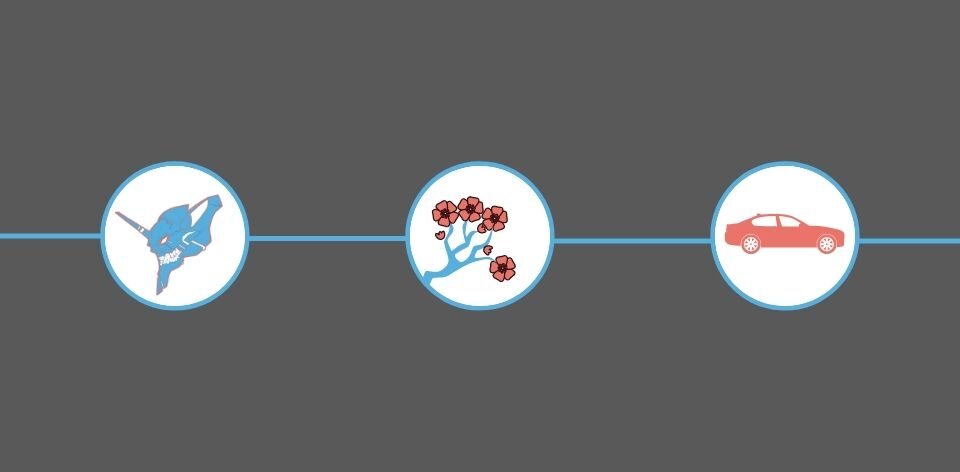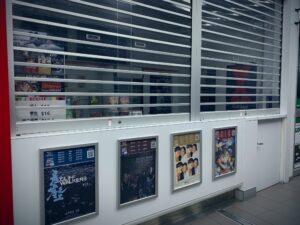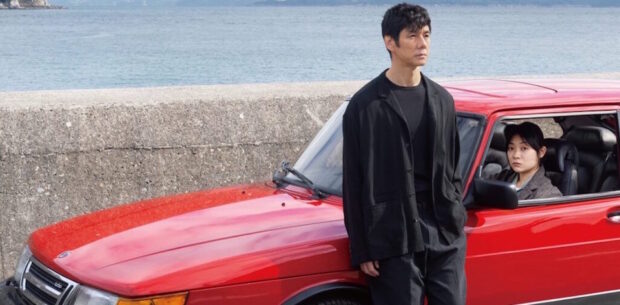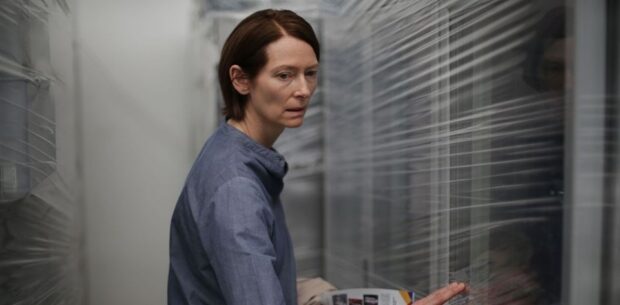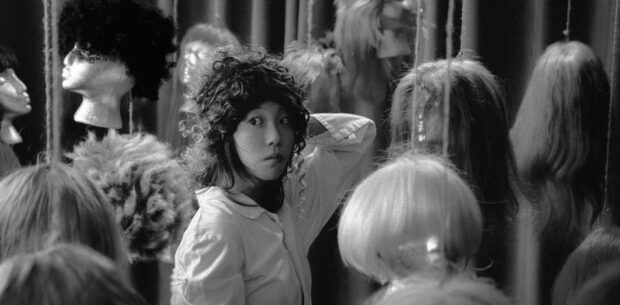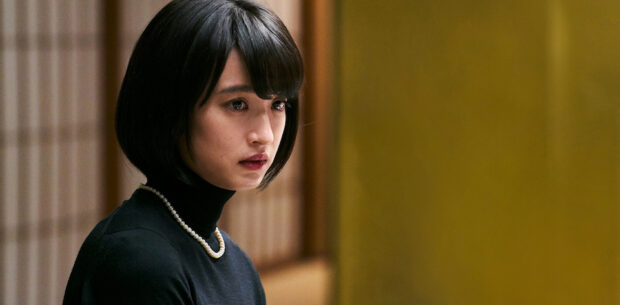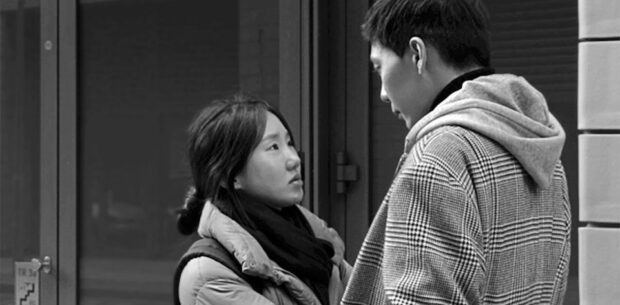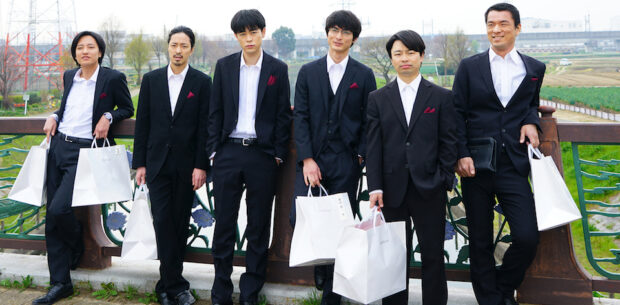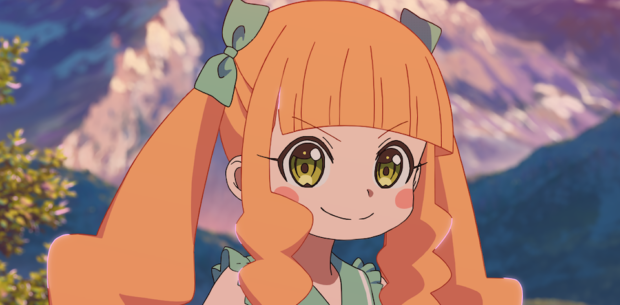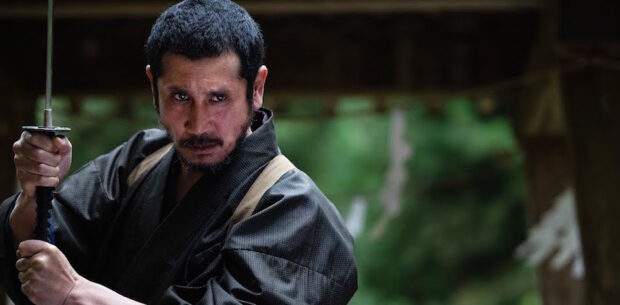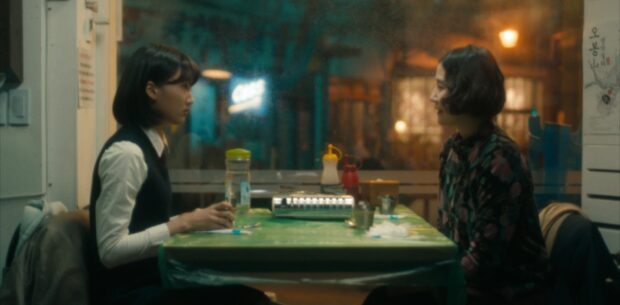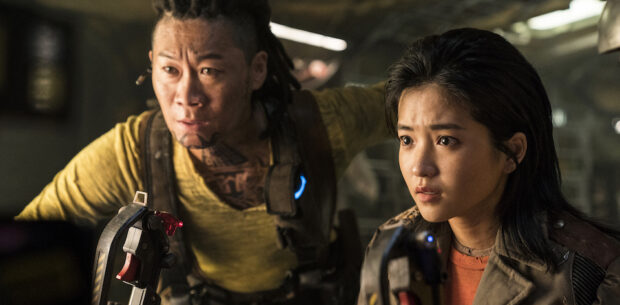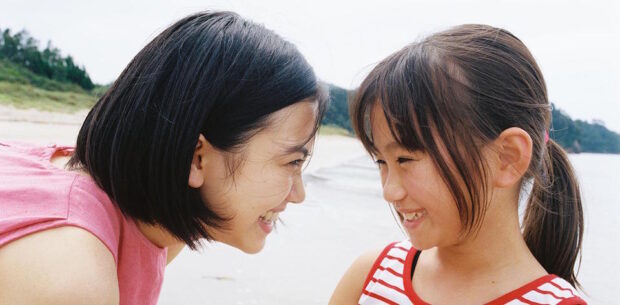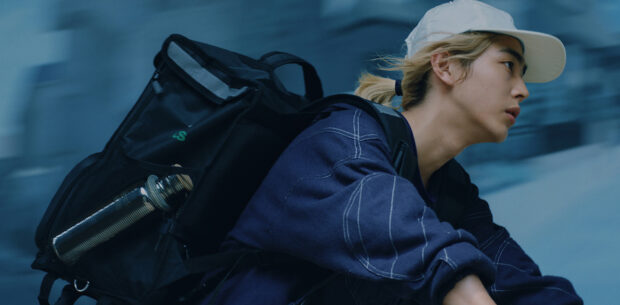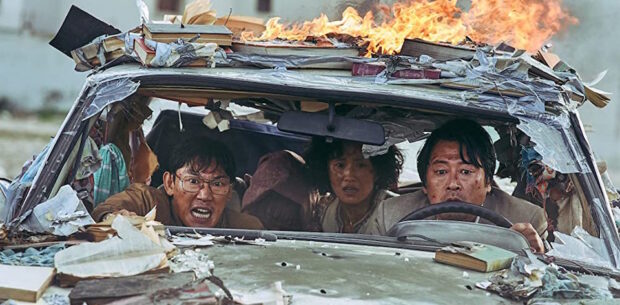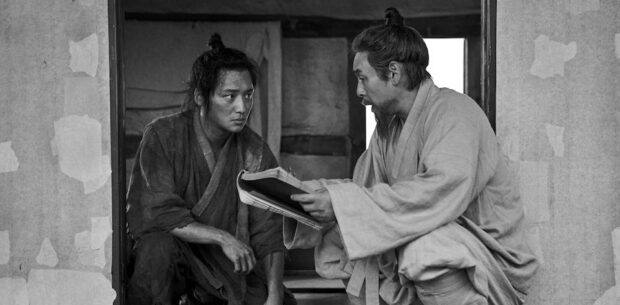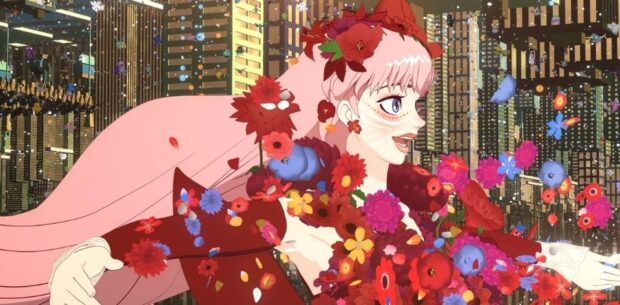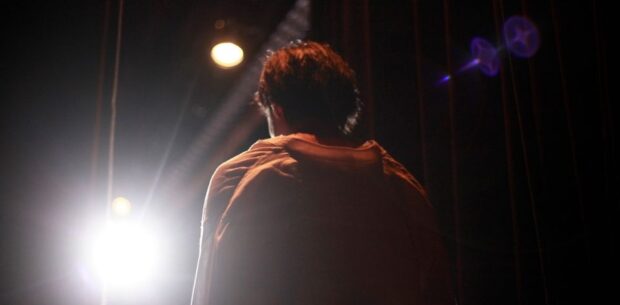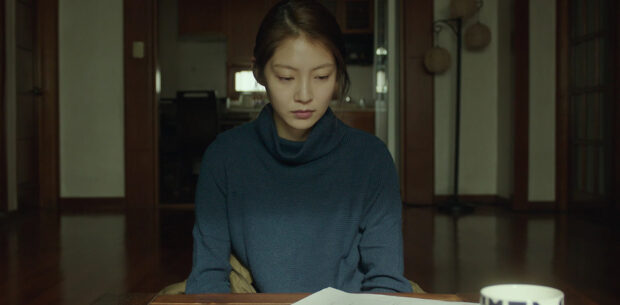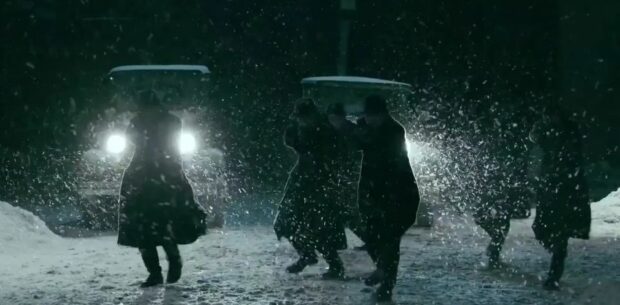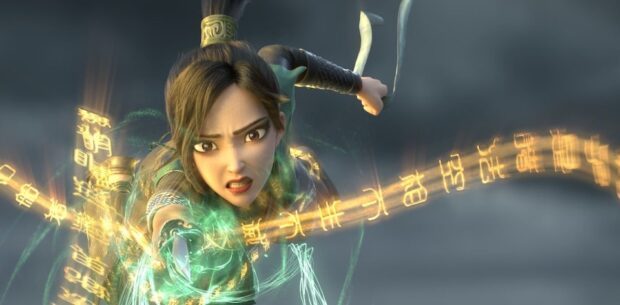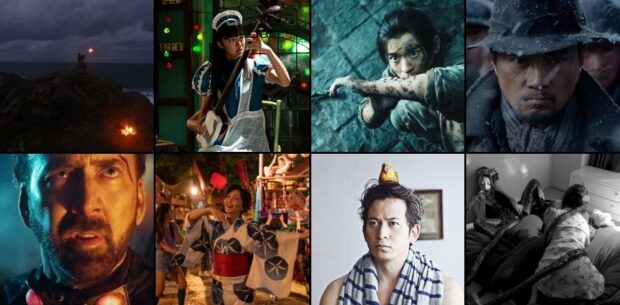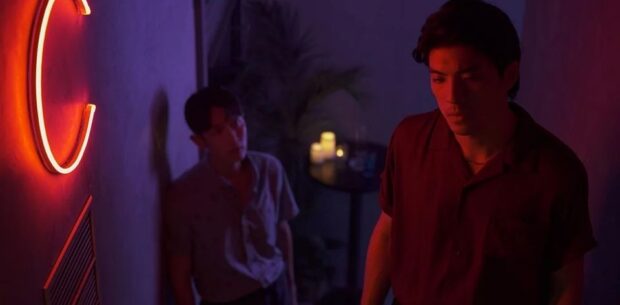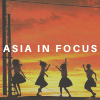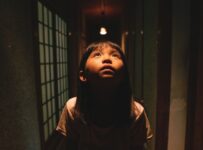More than any other year, Asia in Focus has been a massive part of this site in 2021.
East Asian cinema still doesn’t get a huge amount of attention at western cinemas, at least not here in Australia. This is after a Korean film swept the Oscars last year, and Cannes the year before. Or a Japanese film the year before that. On the small screen, Squid Game has been one of the most watched shows of the year, and Netflix has committed to even more Korean and Japanese content in 2022.
Which is to say that it’s getting better. The pandemic notwithstanding, China overtook Hollywood as the world’s biggest box office last year — evident by the massive blockbusters like Hi Mom, Detective Chinatown 3 and Endgame making their way to our big screens in 2021. It appears set to do the same in 2022.
As I sit here writing at the end of the year, there seems to be more Asian content arriving than ever. You can currently see Chen Kaige, Tsui Hark and Dante Lam’s The Battle at Lake Changjin — the most expensive Chinese film ever made — in local cinemas. Japan’s Sword Art Online: Progressive Aria of a Starless Night is also playing in theatres. Ji Zhang’s Fire on the Plain and David Lam’s G-Storm are only days away. Netflix has just dropped films like Asakusa Kid and The Whole Truth alongside new series from Korea and Japan. Even Disney+ released Blackpink: The Movie alongside K-drama Snowdrop (starring Blackpink’s Jisoo) this month.
Still, you really have to pay attention if you want to get outside the mainstream. Which we did our best to do in 2021. Thanks to the proliferation of online festivals this year, I had the privilege of seeing so many offerings from around the globe. Kicking the year off in Rotterdam, I was pleased to see that the Berlinale, Fantasia Festival, SXSW, MIFF and the Sydney Film Festival all had an impressive array of Asian titles. Of course, Nippon Connection, JAPAN CUTS, NYAFFF, the Japanese Film Festival, Taiwan Film Festival in Australia and KOFFIA are still the go-to sources for the best country-specific content. I’ll also take the opportunity to thank each and every one of them for their support and kindness this year, and I look forward to working with them again in 2022.
Until then, here’s a fond look back at the best offerings of the last 12 months.
Drive My Car
It’s been a bumper couple of years for Ryusuke Hamaguchi, and this adaptation of Haruki Murakami’s short story continues a terrific run. Like Happy Hour, it’s simultaneously and contradictorily much longer than it could have been and exactly the right length. The longer you spend with these characters, the longer you want to. Each passing moment reveals a little bit more of their pain and desires and it’s kind of addictive. Hamaguchi’s measured drama of a life lived with one foot in the past puts the viewer in the back seat and takes us along for every inch of the journey. Read our full review.
Evangelion 3.0 + 1.0: Thrice Upon a Time
Depending on your point of view, the fourth and probably final film in the Rebuild of Evangelion series has been either 14 years or several decades in the making. At last, here is the culmination of all of the various narratives the series has created over the years. It’s frustrating at times, awe-inspiring at others, and quietly emotional when you least expect it. In other words, it is Neon Genesis Evangelion. You can (not) miss. Check out our full review.
Memoria
In a film screening that turned out to be a social catch-up as much as a festival outing, I was asked several times afterwards (in typical Antipodean vernacular) ‘How’d you go with that?’ Each time I found myself responding in more or less the same way ‘I was wanting a film that would just wash over me, and this was the ticket.’ Weerasethakul presents another terrific and meditative piece that links the language of cinema with people connected across time and space. To say anything more would be criminal, but I’ve already committed that crime: read my full review here.
Bipolar
Who is the dreamer and who dreams the dream? Queena Li’s film is all about the journey, beautiful photography, an eclectic cast of characters and one possibly spiritual lobster. A film that stays true to its name in the divisive feelings it will evoke in viewers. On this particular road, we find a dreamer aware they are in a dream and wanting to wake up. If that isn’t an apt metaphor for the last few years, then I don’t know what else is. Plus, it has the best use of a lobster in a narrative since Annie Hall. Read the full review now.
Aristocrats
Beautifully shot and impeccably cast, Sode Yukiko’s third feature unfolds in bookish chapters to give a portrait of a life, well…lived. Based on novel by Mariko Yamauchi, Sode’s film is tale of two women. When we meet the fairly upper-class Hanako (Mugi Kadowaki), she has recently split with her fiancé. The provincially born Miki (Kiko Mizuhara), worked hard to earn a place in a fancy university but has since fallen on more difficult times. ARISTOCRATS may not be be for all tastes: it’s wanders to the slow beat of its own drum. Yet its themes of belonging and expectation are universal, and one can’t help but feel that this is the kind of film that will reveal more of its subtleties on repeat viewings. Read full review.
Introduction
INTRODUCTION may feel like a minor Hong Sang-soo film, running just 66 minutes and split across two countries, but it maintains his distinctive style. Hong has refined his snapshots to a series of recurring motifs, a deceptively carefree style, and a company of familiar actors. Read the full review.
Remain In Twilight
An emotional, and often disarmingly strange, journey about the bonds of friendship, dealing with grief and learning how to move on. In other words, it’s a Daigo Matsui film. Set over the course of 12 years, Matsui’s use of long takes allows us to really know these characters. That is, a group of men seeing each other for the first time in 5 years for a wedding. Oh, and one of them is dead but just keeps on hanging around with them. That’s not even the strangest thing about this film. Read the full review.
Pompo: The Cinéphile
Have you ever felt completely seen by a movie? Based on the manga by Shogo Sugitani, the animated film from director Takayuki Hirao and studio CLAP is made for film lovers. This joyful and film literate feature is a sophisticated and clever insider look at the film industry while also celebrating the medium that we all love so much. Read our full review here.
Go Seppuku Yourselves
Toshiaki Toyoda has rapidly become a festival staple, thanks in part to his outstanding collisions of sound and vision in Wolf’s Calling and The Day of Destruction. As with the latter film, the global pandemic lurks behind the Meiji facade. The demon that is assumed to have ‘poisoned the well’ could very much be an analogy for the intangible nature of a pandemic, even if the film treads a fine balance between literal and figurative causes. You can read our full review of that film here.
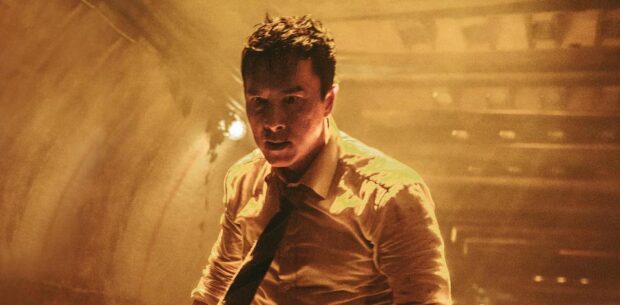
Raging Fire
The film world lost Benny Chan last year after a short bout with cancer. His final film — starring Donnie Yen and Nicholas Tse — gets a posthumous release, and it’s as fitting a tribute as any to one of the true heroes of Hong Kong action filmmaking. As the film closes out with footage of Chan at work, coupled with a dedication to the late director, even the most hardened of HK action fans will probably feel a little emotional. This is a film that knows its audience. Read our full review.
Soak
Hannah Bang has managed to pack a feature’s worth of emotional arcs into a 16 minute short. With an innate sense of scene – from the bathhouse to ritualistically sitting around eating food in front of the television – it’s a heartbreaking coming-of-age that comes in a small package but packs a big punch. Read Brooke Heinz’s full review here.
Space Sweepers
A live action cartoon on a grand scale, filled with sophisticated special effects, a terrific cast and a few surprises to boot. Plus it’s got Thorin Oakenshield as an anime villain. If 2020 was the year that Korean cinema got global attention, then SPACE SWEEPERS signals the breadth of what the nation’s film output can offer. Read our full review.
The Goldfish: Dreaming of the Sea
A remarkable coming of age story that manages to package several worlds of hurt and rebuilding into a delicately slender vessel. It’s a film that slowly unfolds, which is a deft feat for a film with such a slender running time. It’s rarely said overtly, but we soon learn that both lead characters Hana and Harumi have a shared experience of a difficult and sometimes abusive relationship with their mothers. Sara Ogawa signals her arrival as storyteller to watch. Read our full review.
Spaghetti Code Love
Murayama Takeshi’s debut narrative feature begins with a question: “Why? Why me?” It’s the anguished cry of a child in an arcade, and all a (as-yet-unnamed) woman can do is just hold him. So begins a series of interconnected stories of people looking for love and companionship in Tokyo, and the collision of their expectations with reality. Read full review.
Escape from Mogadishu
The biggest South Korean release of the year is a top-notch action thriller set against not-too-distant history. In January 1991, amidst rising rebellion and the ultimate collapse of Somali President Barre’s government, the South and North Korean embassies find themselves working together to flee the country before the violence escalates further. The aftermath of this event, and broader Somali Civil War, has famously been depicted by Ridley Scott in Black Hawk Down (2001). Although playing out on a more focused scale, and with a drastically smaller budget, Ryoo skilfully manoeuvres the audience to a bittersweet ending via a breathless series of spectacularly staged action sequences. Read our full review.
The Book of Fish
A remarkable and beautifully shot monochrome gem that is equal parts meditative and poetic. Two central performances carry this, but the supporting cast is charming and effective. While there are some specific cultural touchstones here, they are not really a barrier to entry. Read our full review.
Belle
It’s interesting seeing this so close to The Matrix Resurrections as I was totally into the vibe of virtual worlds and duality. It’s a vibe that Mamoru Hosoda knows so well, with his films often exploring the lines between this world and something ‘other.’ Hosoda continues his thematic journey, linking early Digimon and especially Summer Wars with this modern fable. From the visually stunning opening to the gut-punch of an emotional conclusion, this is one of the most beautiful animated films of the year. While it debuted at Cannes and in Japan during July this year, it releases in the US from GKids on 14 January 2022 and in Australia on 20 January from Kismet.
Sasaki in My Mind
Developed in collaboration with actor Gaku Hosokawa, and based on someone he knew at school, Takuya Uchiyama’s latest project is both personal and universal in its themes. This film for the downtrodden is an intimate character study of the people who impact our lives and learning to shine in one’s own spotlight. A film that’s quietly affirming and a reminder that it’s never too late to be true to yourself. Read full review.
Aloners
The art of the struggle of being alone is explored with a floating intimacy in Hong Sung-Eun’s debut feature. The phenomena described in Hong’s film is so common there’s a name for it: honjok. The term refers to people who engage in typical social activities — eating, drinking, leisure trips — alone. The film is a collection of moments that add up to a major character shift, but could just as easily have gone in the other direction. This is the skill of Hong’s delicately balanced film. Lead character Jin-A ultimately works to break a cycle that was taught to her, and eventually concludes with some irony that “I just need some time to myself.” Read our full review.
Ushiku
Ian Thomas Ash (Sending Off) takes a look at refugees in Japan, where a shockingly low 0.4% of applicants are accepted. Ushiku Detention Center is the focus of Ash’s film, using it as a microcosm of the hardships refugees must undergo after fleeing their home countries and being denied refugee status by Japan. “This isn’t a ‘foreigner’ problem,” says one official. “It’s a Japanese problem.” Going one step further, let’s agree that it’s an issue the whole world needs to agree on how to move forward with. Often heartbreaking, always confronting, this film needs to be seen by lawmakers everywhere.
Fan Girl
Fandom and power dynamics get interrogated in this brilliantly performed two-hander. Fandom can be intense and life-changing, and at its best connects you with a wider community. Yet Jane is not necessarily left in a positive place by the end of the picture. So, don’t expect any easy resolutions here, but do expect to ponder this film long after it’s finished. (While this is officially a 2020 release, it received an international release in 2021 so we’re counting it here). Read our full review.
Cliff Walkers
Zhang Yimou’s impeccably produced film shares a similarly thin line (and time period) of historical fiction and overt nationalism as this year’s Railway Heroes (see below). Yet in a year when Zhang already impressed festival audiences with One Second, this handsomely produced film about four Communist Party agents being trained in the Soviet Union reminds us of what he looks like at the height of his talents.
Green Snake
This may seem like an odd choice given some of the company on this list. As the sequel to the magnificently animated film White Snake, it’s officially known as White Snake 2: The Tribulation of the Green Snake. After a cold open, it takes a hard turn away from Chinese folklore and into a post-apocalyptic wasteland reminiscent of the Resident Evil franchise. Somehow this works, with director Amp Wong maintaining the visual highlights of the first outing while boldly combining mythology with hyper modern elements. Sure, the ending is confusing as all hell, and it seems less concerned with the overall arc than the moment to moment action. Yet when the moments are this good, it’s hard to complain too much.
Best of the rest
After whittling my top ten down to just 23 films, I had about dozen other films I still wanted to talk about. So, welcome to the afterword.
In the three years since director Kazuya Shiraishi released The Blood of Wolves (2018), he’s released a whopping four more films including dramas Sea of Revival and One Night. LAST OF THE WOLVES, the sequel to The Blood of the Wolves, takes everything up a notch with a more sophisticated story and a compelling central rivalry. Check out my full review.
Another terrific sequel was THE FABLE: THE KILLER WHO DOESN’T KILL. All the esoteric elements come together nicely, with some large scale set-pieces that are world class. While the film can be happily enjoyed as a separate entity to the original, it’s clear that knowing these characters is learning to love them. My full review comes from the screening at NYAFF.
ITO (or ITO-MICHI if you prefer) is the only 2021 film about a shy shamisen-playing country girl who winds up working in a maid cafe. Thanks to director Satoko Yokohama and co-writer Koshigaya Osamu, not to mention the amazing talents of Ren Komai (True Mothers) in the titular role, it absolutely works. A heartfelt coming of age drama with some of the best shamisen-based denouement you’ll see in a film this year.
At the other end of the scale is the short film KOREATOWN GHOST STORY, in which directors Minsun Park and Teddy Tenenbaum cast Margaret Cho and Lyrica Okano in a horror comedy show how far one mother will go to match up an unmarried young woman with a boy just like her son. Filled with genuine scares and some laugh out loud moments, if this was a feature you’d be seeing it on best-of lists all over the place.
Arguably one of the more original blockbusters to come out of China in the last few years, A WRITER’S ODYSSEY is a surprisingly dark special effects and action piece that doesn’t mind piling in the narrative layers and expecting you to keep up. Here’s a full review of that.
Genuine joy is to be had in WONDERFUL PARADISE, a film where weird and wonderful go hand in hand. Yet nothing can really prepare you for the back half of this film. From a child transforming into a stick through to a mutant coffee bean growing out of control, the script is equal parts midsummer sex comedy and pure train of thought. Read our full review.
Rounding things out are a collection of other highlights I’ve reviewed this year, including China’s RAILWAY HEROES, Hong Kong’s LIMBO, Japan’s YES, YES, YES, and Taiwan’s MONEYBOYS (pictured above).
It would also be difficult to leave this column without mentioning Sion Sono’s PRISONERS OF THE GHOSTLAND, a film that spent three consecutive years on my most anticipated lists. The incomparable Sono meets the immovable Nicolas Cage and the results are exactly as expected. Although ‘expected’ is not a word you’d readily apply in this situation. While this may not be the greatest Sono in the canon, it’s a great example of how his voice can successfully transition with something resembling western aesthetics. There is nobody else on the planet who could say ‘testicle’ in quite the same way as the man assigned the name Nicolas Kim Coppola. My very full review can be found right here.
A complete selection of all the 2021 films I’ve viewed for Asia in Focus can be found on Letterboxd. Read more coverage of Asian Cinema — from the silent era to current festivals and other contemporary releases — all throughout the year in our dedicated Asia in Focus area.

